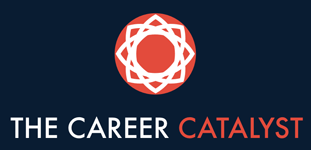
For career changers, telling the story of the new path can be intimidating and fraught. Here are some tips on telling interviewers about your change.
Start by being clear about it yourself. Focus on what’s appealing to you about the new field instead of what drove you from the old one. It’s easy to get caught up in what you didn’t like, but employers will be much happier to hear about what excites you.
Next, review the transferrable skills you can use in the new role. We can all get a little bit myopic when we look at our own work histories, seeing only how we use our abilities as they relate to the old job. But most of the things we do are useful in many other capacities, too. Teachers, for instance, have loads of public speaking experience. Bookkeepers can really demonstrate attention to detail. Pull out the behind-the-scenes info about your jobs and write those skills down. Don’t undersell your work history, either. The stuff that feels easy to you only feels that way because you built skills around those tasks, so embrace the work it took to get you there!
When you’re clear on the skills, take a moment to focus on the technical stuff. If you used medical software, you can translate that into CRMs. If you used spreadsheets for something in one arena, you can learn to use them in another.
Once you have all that good info in front of you, start crafting your narrative. Talk a bit about what you learned from previous roles, but keep the focus on the new role. Describe how those older experiences have given you the ability to do this new stuff, and be specific. Remember to let your enthusiasm show, in whatever ways you find appropriate. If it helps you feel more comfortable, practice talking through this with a friend or family member, and be sure to ask them for honest feedback.
When it comes time for the actual interview, have those notes someplace you can easily see them. A notepad in an in-person interview, sticky notes when you’re virtual—whatever works! And don’t worry if you get a question that contains an unfamiliar word or phrase. You can absolutely ask questions about the questions: “I’m pretty new to this field so I’m not familiar with that term. Can you please explain it?” Chances are good that the confusing language is either industry-specific jargon that you haven’t yet learned or is the name of a proprietary software or system they use. Either way, you should be able to craft an answer to the question once you’re clear about what they’re asking.
And don’t forget to smile during your interview! It demonstrates your overall pleasantness, and even more importantly, it reminds your brain that everything is fine and it doesn’t need to go into panic mode.



